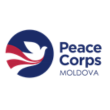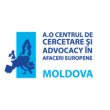Organizații vizate:
Granturi și Finanțări
- Detalii
- Categorie: Granturi
Call for Expressions of Interest - Faith Engagement for Better Care in Moldova
Informațiile prezentate în articolul de mai jos pot să nu mai fie actuale sau să nu mai reflecte activitățile și programele curente. Anunțul este păstrat în arhivă pentru a asigura transparența și accesul public la informațiile despre inițiativele și proiectele implementate anterior.
Call for Expressions of Interest
Faith Engagement for Better Care in Moldova
Introduction
Catholic Relief Services (CRS), acting as prime recipient on behalf of the Changing the Way We CareSM (CTWWC) consortium, is soliciting expressions of interest (applications) from organizations which - with limited financial and technical support - have the capacity and commitment to develop and implement projects and activities focused on faith engagement for better care, that prioritize, promote and sustain safe and nurturing family care for children.
The applications will be respectfully reviewed in a process described below. However, submission of an application does not guarantee funding/technical assistance from CRS.
This Call consists of the following:
- Section 1. Program Description
- Section 2. Award Information
- Section 3. Expression of Interest Response Information
- Attachments
- Attachment A: Scope of Work
- Attachment B: Application Format
- Attachment C: Certification of Intention to Comply
- Program Description
Changing the Way We Care
Changing The Way We Care (CTWWC), a global initiative launched in October 2018, is designed to promote safe and nurturing family care for children including reducing the risks and vulnerabilities that result in family separation and reintegrating children who have been separated. CTWWC is a consortium led by Catholic Relief Services (CRS) and Maestral International and includes a wide range of global and national partners.
CTWWC is currently demonstrating care reform in Guatemala, Haiti, India, Kenya, and Moldova, with influence and advocacy activities at the regional and global levels. The global effort uses learning and evidence from CTWWC demonstration and other countries to influence policies and practice that support family over institutional care.
CTWWC/Moldova
Recognizing the considerable achievements in Moldova’s long process of care reform, and fully committed to enabling local solutions to reform’s challenging last steps, CTWWC Moldova supports a “collective” approach to program planning, implementation, and monitoring. That approach consists of sharing a common agenda (the National Child Protection Program and Plan), coordinating mutually reinforcing activities, and manifesting a “continuous communication” approach. CTWWC Moldova supports the activities of the collective as a “backbone” organization, providing coordination and secretariat functions. Infrequently, when expertise is required but not available locally, CTWWC may also act as technical contributor by accessing international experts through its global team. Lastly, CTWWC occasionally acts as a conduit for funding. It is in its capacity as funder that this Call is issued.
CTWWC’s lead organization in Moldova is Catholic Relief Services, a US non-governmental organization registered in Moldova on December 4, 2020, under No. 457335.
Key definitions and concepts to be considered for this Call for Expressions of Interest:
- Faith-Based Organization and Institutions: Organizations that derive inspiration and guidance for their activities from the teachings and principles of the faith or from a particular interpretation or school of thought within that faith.” They comprise a range of religious, charitable organizations affiliated with one or more faith and spiritual traditions, which may include: Religious congregations (such as churches, mosques, synagogues, or temples); Charities sponsored or hosted by one or more religious congregations; Non-profit organizations founded by a religious community or based upon faith and spiritual traditions; and Coalitions that include organizations described above.
- Faith Leader: Individuals with formal affiliation to a religion or spiritual path who play influential roles within their communities and the broader civil society. Examples include priests, imams, rabbis, clerics, monks, nuns, and lay religious leaders.
- Vulnerable children: Individuals under age 18 whose safety, well-being, and/or development is at significant risk due to inadequate care, protection, or access to essential services.
- At risk families: Families and children can find themselves as 'at-risk' when they experience violence, abuse, neglect, exploitation and separation from family-based care. Common factors which increase risk and vulnerability include domestic violence, poverty, physical and mental health issues, drug, and alcohol abuse.
- Family Strengthening: Family strengthening refers to programs, strategic approaches and deliberate processes that seek to strengthen the protective factors that, when present, provide children with safe, nurturing care even when the family is under stress.
- Alternative Care: A formal or informal arrangement whereby a child is looked after at least overnight outside the parental home, either by decision of a judicial or administrative authority or duly accredited body, or at the initiative of the child, his/her parent(s) or primary caregivers, or spontaneously by a care provider in the absence of parents.
- Capacity Strengthening: the process through which individuals, organisations and societies obtain, strengthen, and maintain the capabilities to set and achieve their own development objectives over time.
- Award Information
Purpose. Scope of Work for this Call is presented in Attachment A, which describes CTWWC objectives and proposed implementation approaches for faith engagement in Moldova. Note: The successful applicant, and the project that the sub-recipient will implement, are subject to approval and potential amendment by USAID.
- Activities are expected to begin on February 1st, 2024 and continue until August 30th, 2025 at the latest.
- This Call is issued to organizations with legal registration in Moldova.
- The total funding for the work described in Attachment A is up to 100,000 US Dollars.
Note: Although collaboration among organizations is encouraged, to promote accountability, no joint expressions of interest will be reviewed. See Attachment C’s Certification of Intention to Comply for critical aspects of potential legal relationships. As above, CRS is not obligated to fund or provide a response to all or any respondents.
- Expression of Interest Response Information
All applications should consist of:
- The following table:
|
Information required |
To be completed by the applicant |
|
Name of Organization Expressing Interest |
|
|
Registration Number and Address |
|
|
Name and Email of the Person Authorized to Make Decisions about Participation |
|
|
Title of the Program to which the Expression of Interest applies |
Faith Engagement for Better Care |
|
List of outputs (as listed in Attachment A: Scope of Work) that the application will focus on |
- Narrative response describing:
- why the applicant organization is best placed to implement the SOW objectives – 3 pages maximum;
- how the activities will be undertaken for successful and timely delivery of the objectives – 3 page maximum.
- Response Excel including:
- DIP – detailed implementation plan
- Budget
- Past Performance Record – specifically as applicable to the SOW for which interest is being expressed
- Certification of Intention to Comply with 2 CFR 200 and substantial involvement requirements as interpreted and applied by CRS (see Attachment C).
Expression of Interest Submission Procedures
Responses must be written in English or Romanian and submitted in Microsoft Word and PDF formats, with the budget submitted, DIP and Past Performance Record in Excel. The email subject line should follow the following format: CTWWC/MD – Organization Name – Faith Engagement. Responses should be submitted to ctwwcmoldova@crs.org, which is a limited-access address. Any questions on this Call should be documented and sent to ctwwcmoldova@crs.org by December 4th, 2023.
Applications/Expressions of Interest to this Call must be received no later than December 17th, 2023. CTWWC will acknowledge receipt as applications are received and will contact respondents on next steps/outcomes by January 12th, 2024.
Expression of Interest Review Information
The application will be reviewed by a CRS review committee based on the criteria set out below, information the applicant provides, and other publicly available information. Evaluation criteria used by reviewers will include:
|
Criterion |
Indicators |
% |
|
Technical Capacity to Implement |
Record of past performance Experience in care reform in Moldova Alignment between the SoW and applicant’s ongoing programs Documented existing relationships Credentials of staff presented as leads for implementation Evidence of commitment to documenting and sharing learning |
40 |
|
Proposed Approach |
Relevance of proposed activities to program objectives Level of detail in the Detailed Implementation Plan |
20 |
|
Disposition towards engaging with faith based communities |
Past performance in activities involving faith-based communities, their leaders, the child protection system and other related activities |
20 |
|
Cost Effectiveness |
Reasonableness of proposed costs |
20 |
Where required, the review team will reach out to applicants for clarifications and may request budget and other revisions. CRS will also conduct a “due diligence” assessment of the selected applicants.
Once a successful applicant has been identified, information about the organization and the project it will implement will be shared with the donor for approval, as required under provisions of the USAID cooperative agreement with CRS.
Attachment A: Scope of Work
CONTEXT
Changing The Way We Care (CTWWC) is a global initiative designed to promote safe and nurturing family care for children including reducing the risks and vulnerabilities that result in family separation and reintegrating children who have been separated. CTWWC is a consortium led by Catholic Relief Services (CRS) and Maestral International and includes a wide range of global and national partners. CTWWC is demonstrating care reform and the importance of family care in Kenya, Guatemala, India, Haiti, and Moldova.
In Moldova, CTWWC works with a wide range of actors, including government, non-governmental organizations (NGOs), faith-based actors, and those with lived experience to jointly identify, design and implement programming that prioritizes, promotes, and sustains safe and nurturing family care for children.
Faith-based engagement in child protection and care
Faith communities in Moldova play critical roles in forming, informing, and influencing public opinion and social development of communities. In 2021, CTWWC conducted a national study exploring faith-based engagement in child protection and care in Moldova. The study included the Moldovan and Bessarabian Orthodox Churches, the Catholic Church, Protestant and Evangelical churches, the Jewish community, and other faiths. The study recognized that faith leaders strongly influence social matters, public opinion, and faith-based structures. They reach deep into communities to provide an array of social services including services and programming that support vulnerable children and families. Most recently, the faith-based actors showed their ability to quickly respond and serve with the onset of the war in Ukraine. However, the study also identified that most of this work has been done informally and often outside the formal child protection system and related structures.
Faith Engagement Strategy
Utilizing the important findings from the report, recognizing that faith-based actors have an important role to play in child protection, and leveraging the experience and relationships of the CTWWC consortium partners, CTWWC Moldova designed a strategy to engage and foster collaboration with key faith-based actors during this critical next phase of care reform in Moldova. The engagement strategy defines how Changing the Way We Care Moldova will help promote the engagement of faith-based actors within the broader care reform effort in Moldova.
Specifically and in collaboration with faith based partners, CTWWC will support fostering greater recognition of the important contributions that faith-based actors have and will continue to make in care reform in Moldova. Through intentional collaboration and inclusion of faith-based organizations, CTWWC will contribute to increased knowledge of, participation in, and formal engagement of faith-based actors in the child protection system. The strategy is not intended to reflect a linear process or simple set of chronological steps, but a robust and dynamic form of relational and ongoing development and change. Considering this, CTWWC believes there is a unique and timely opportunity to enhance collaboration and coordination between the two sectors. In partnership with faith-based actors, CTWWC will create opportunities that harness the important work, know-how, and reach of faith-based organizations, especially at the community level, and channel their important contributions into the long-term vision of a family-centered child protection system able to support all vulnerable children. At the same time, creating opportunities for the public sector mandated with overseeing child protection to engage with and gain familiarity with faith-based actors.
As part of its strategy and through this Expression of Interest, CTWWC is searching for a partner who will develop a model for effective engagement and participation of faith-based communities, organizations and faith leaders in the prevention of family separation and the reintegration of children from residential care facilities into family-based care. Derived from this main objective, three key outputs have been formulated and are setting expectations for the future partner’s proposed activities:
- increased identification, participation of, and referrals (i.e., intentional collaboration) between faith-based communities, organizations and leaders and community social workers, including child protection specialists (where relevant);
- promotion of family-based care and the importance of family strengthening efforts by faith leaders in their religious communities;
- strengthened provision of family strengthening programs and where relevant, strengthened provision of family-based alternative care (kinship care, foster care) by faith-based actors reflecting good practice and Moldova’s child protection policy priorities and objectives.
KEY CONSIDERATIONS
Applicants are encouraged to propose project concepts and list of detailed activities, having the 3 outputs in mind, but also relying on their experience in the communities, while highlighting, in the applications, any known gaps or challenges in the current interactions between the faith-based community and child protection system that the applicant would like to address. Further, applicants are encouraged to consider in their proposals some recommended activities for reaching the 3 key outputs:
- Design a capacity building program for community social workers and their supervisors on effective engagement with faith-based communities and their leaders in the prevention of family separation and promotion of family-based care;
- Develop and put into practice supervision and guidance sessions with community social workers and their supervisors to support implementation of engagement with faith-based communities and their leaders;
- Support small scale community initiatives focused on developing practical examples of faith engagement for better care efforts;
- Document key learnings, including challenges, best practices, case studies, and good practices and develop a Guidance on faith engagement in prevention of family separation and the reintegration of children from residential institutions. The Guidance document will be shared with key stakeholders in Moldova and lay the ground for a national scaling strategy.
Linked with other care reform initiatives supported by CTWWC in Moldova, there is a predefined area for the implementation of activities which is Ialoveni region, consisting of 4 raions: Criuleni, Dubăsari, Ialoveni, Strășeni, however there is no expectation to conduct activities in all raions and all communities.
Further, when putting together your application (project concept, detailed activities, budget, etc.), plan for the project duration of February 2024 – August 2025, 18 months at a maximum, the last project month, August 2025, should only focus on project close out activities and reporting.
Please see Section 1 of this document for additional explanations and key concepts relevant to this Call.
Attachment B: Application Format
- Organizational Information and Narrative: Please supply both PDF and modifiable Word versions. Please see Section 3. Expression of Interest Response Information for instructions.
- DIP, Budget, Past Performance Record: Please complete CRS Call for EoI Response Templates (attached as separate excel)
- Certification of Intention to Comply: Please supply PDF signed version of the Certification, Attachment C below.
See attached documents to this announcement.
Attachment B Response Templates








